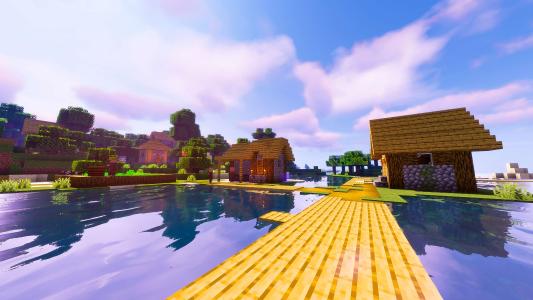One of the most remarkable projects to debut at the 2020 Venice International Film Festival wasn’t a film in the traditional sense.
It was a virtual reality experience called “Agence” that blends elements of filmmaking with video games and artificial intelligence. The final result? A “dynamic film” that changes every time you watch it.
A New Kind of VR Movie
Film transports viewers to another world, filled with characters that do one thing, then another, until eventually, the movie reaches its predetermined end — rewind the film, and you’ll see the same thing every time.
In a video game, a player also enters another world. They can then interact with that world and its characters to affect the game’s direction and outcome — you do X, and Y will happen in the game.
Some filmmakers have already started blending these two dynamics — the “Black Mirror” episode Bandersnatch, for example, lets the viewer choose the next steps in the plot — but like a “choose your own adventure” book, there are still only so many ways the story can play out.
“Agence” puts a different spin on things.
At the start of the VR movie, the viewer finds themselves looking at one of countless round planets inhabited by five creatures, dubbed “agents.”
At that point, they have two options.
They can sit back and observe the agents passively, like they’re watching a film. They might notice that some of the agents are aggressive, kicking the others, or watch as an agent loses its balance and falls off the planet.
Their second option is to interact with the characters and the environment, like they would in a video game. They might opt to separate two quarreling agents or plant a magical “hypnoflower” that affects the agents’ interactions.
But unlike a video game, doing X in “Agence” won’t always prompt a predefined response — and that’s because some of the agents have brains.
More Brains
At least, that’s how lead creator Pietro Gagliano described them to Upload VR. Technically, one of the five agents on each planet is an AI, trained by reinforcement learning that rewards it for reaching certain goals.
The result is an agent that can think and act for itself, often in ways even the creators of the unique VR movie can’t predict.
“We’ve already been surprised by certain things that they do and new storylines that unfold,” Gagliano said, “and that’s really exciting.”
I want those creatures to mess up the film.
Pietro Gagliano
The filmmakers are still creating new agents with brains, which they’ll drop into “Agence” every couple of weeks. They also plan to release an open source tool kit that will enable others to train their own agents, which could then be added to the VR movie.
“You could decide to train an agent, for example, where they’re rewarded for every collision they have with another agent,” co-developer David Oppenheim told Mashable. “Their characteristic or their personality will be one of aggression.”
As for the four agents in the VR movie without “brains,” their behavior is pre-programmed to push the story forward. However, a viewer could decide to change the ratio of agent types.
“Because they’re pretty dumb, we just keep it to one (agent with a brain), but the user can go in and turn on more,” Gagliano explained to Mashable. “There’s a little info button to say who trained the brain that you’re watching. So if we have collaborators, we can credit them there.”
Evolving Agence
While “Agence” is a VR movie, it can also be enjoyed without a headset, on a mobile device or computer, with the cost of download ranging from $1.99 to $2.99.
The low price is a strategic move on the filmmakers’ part. The more people they can get to experience “Agence” — and the more people they can convince to undertake the training of new brains — the more opportunity there will be for their agents to evolve.
“I want those creatures to mess up the film,” Gagliano said. “I want them to go in there and surprise us and do things that we never (expected), especially when you turn all five brains on and we can see little ecosystems forming and whatnot. And they’re far too dumb to do that right now.”
We’d love to hear from you! If you have a comment about this article or if you have a tip for a future Freethink story, please email us at tips@freethink.com.






